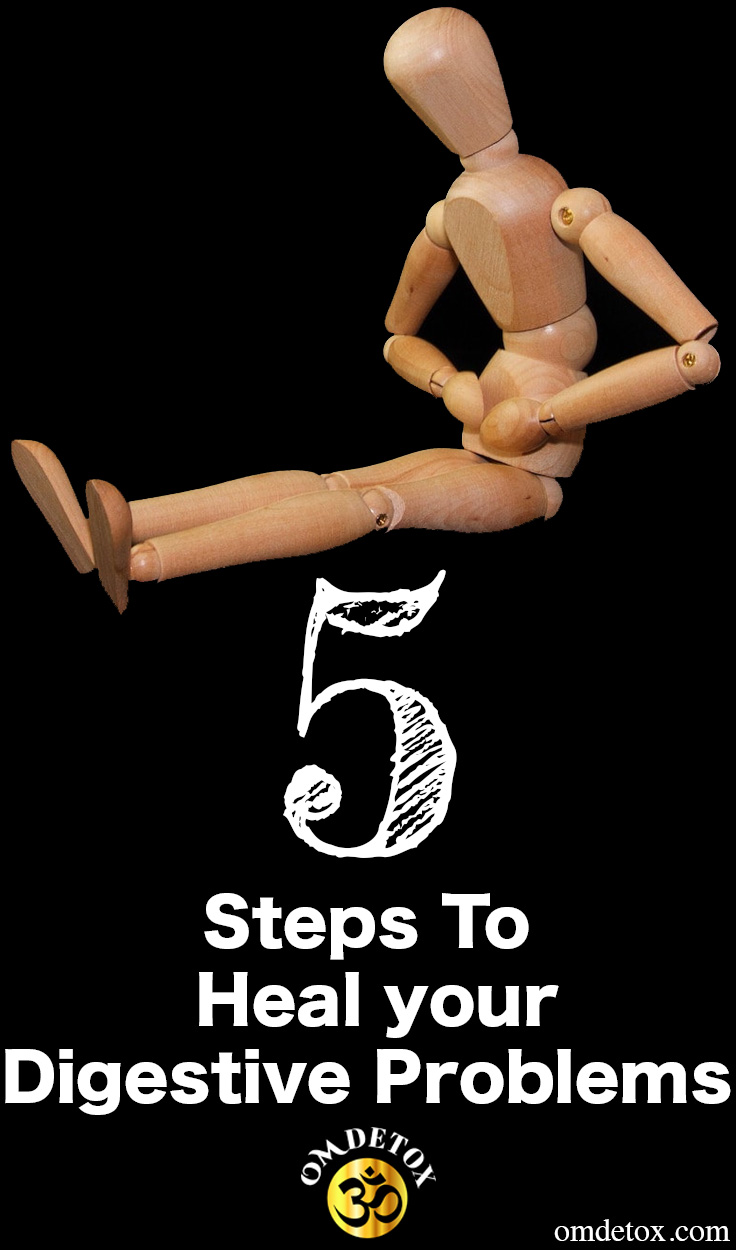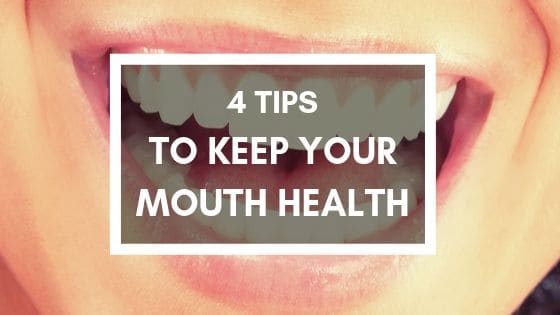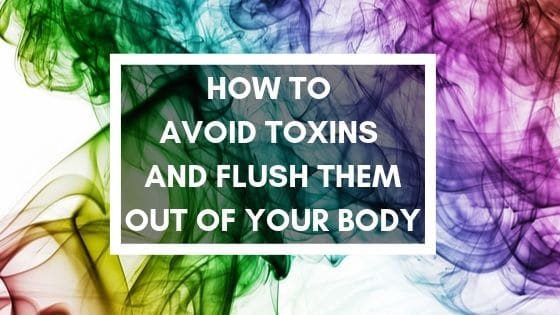Have you ever asked yourself why you suffer from digestive problems? Why do we think that it’s normal to feel like crap after a meal? Why bloating, gas, acid reflux and constipation are now so common, that we believe that they are a part of the digestion process? We could not be farther from the truth!
Digestive problems are the symptoms of our poor lifestyles and diets, and our lack of knowledge about nutrition. The overabundance of processed foods, fatty foods and industrial sugar has transformed us into eating robots.
We do not ask where our food comes from. We do not read labels. We buy whatever is available to us in grocery stores, and we’ll just devour any food porn that is served to us in the newest trendy restaurant. We make sure our tummies are full at all time and we trust a food industry who is telling us that bacon is good for us. No wonder why we suffer from digestive problems.
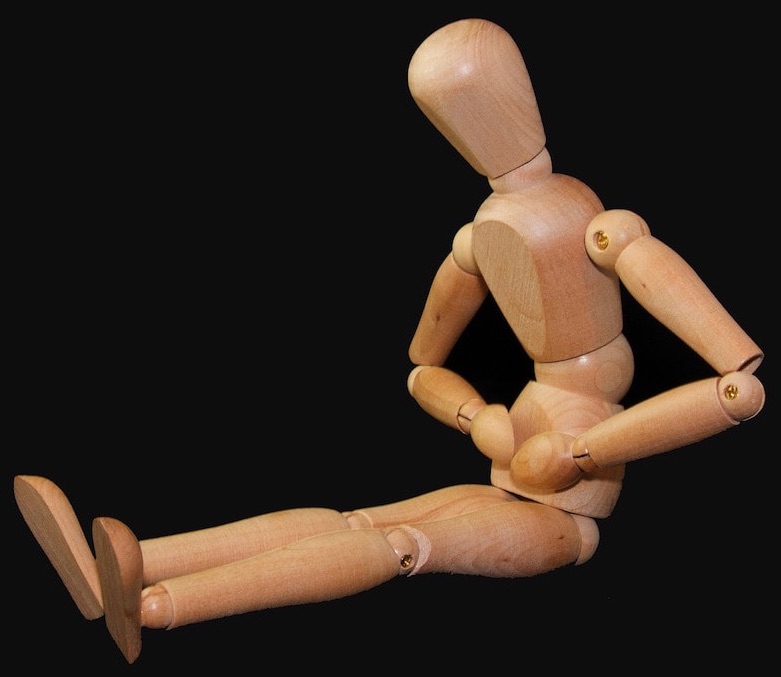
Common Symptoms of Digestive Problems
Constipation
Constipation is usually described as having less than three bowel movements per week. In reality, if you are having less than one to three bowel movements per day, you are suffering from constipation.
We should eliminate as often as we eat food, or at least have a good elimination daily. Constipation also consists of having lumpy or hard stools, that are usually difficult to pass. If we do not fix the issue, constipation can lead to other digestive problems.
Constipation is usually caused by a diet that is low in fibre (meat based), getting little to no physical activity, not drinking enough water, or taking certain medications such as sedatives and antidepressants.
There can also be health conditions that can provoke constipation, like diabetes, pregnancy, thyroid problems, Parkinson’s disease, multiple sclerosis, a spinal cord injury, depression and stroke. There can be complications from chronic constipation, like hemorrhoids, anal fissure, fecal impaction (accumulation of hardened stool in the colon that can’t be expelled) and rectal prolapse.
Bloating and gas
Bloating and gassiness are not just an occasional event experienced at Christmas time. More than 10 percent of people report suffering from bloating regularly. Usually, this is caused by eating habits, like overeating, eating fatty foods or eating too fast.
Gassiness, another symptom of a bad digestion, is often the cause of bloating. Intestinal gas is either caused by swallowed air or by our gut bacteria. If the GI tract is not able to move the air efficiently, gas accumulates in the intestines and provokes bloating and discomfort.
Certain foods can cause more bloating and gas than others. Beans contain oligosaccharides that must be broken down by our gut bacteria, causing more gassiness. Cruciferous vegetables like cabbage, Brussel sprouts and cauliflower contain starches that may cause gassiness in certain people. Whole grains contain a lot of fibre, so it can also cause gassiness.
We should not stop eating whole grains, beans and vegetables because they make us fart a little. They also contain important nutrients that the body needs, and can prevent many of our common diseases such as diabetes, heart disease and cancer. On the other hand, the industrial sugars that are added to processed foods can be very difficult to digest, and should be avoided.
Dairy products also provoke digestive problems in 75% of the population, like intolerances and allergies. Milk is the lactation of a large bovine animal. It is not meant for human consumption and is not necessary for our health.

Heartburn
Having heartburn can be described as a burning pain from the stomach to the chest, or even up into your throat. There is a valve at the entrance of the stomach called the lower esophageal sphincter, that closes when food passes through. If it doesn’t close properly, the acids produced in the stomach can come up into the esophagus and cause heartburn and acid reflux, a bitter-tasting acid in the mouth. According to the Mayo Clinic, if those symptoms occur more than twice a week, you may be diagnosed with GERD, (gastroesophageal reflux disease).
Common risk factors for heartburn and acid reflux disease include being overweight, overeating, lying down after a meal, eating before bedtime, drinking alcohol, sodas or caffeinated drinks, smoking, being pregnant and eating fatty foods.
Heartburns can cause other symptoms and discomfort such as bloating, burping, hiccups, nausea and dysphagia (the narrowing of the esophagus, which creates a sensation of having food stuck in the throat).
5 Steps to Heal your Digestive Problems
Step 1: Take your Time
Your digestion starts in your mouth, so take the time to chew. It sounds stupid but most people do not chew their food properly. We are always in a hurry for the next bite! Anything that you don’t chew, your stomach will need to do later. Eat and drink slowly to avoid swallowing air. By doing so, you will avoid digestive problems such as gas and bloating.
Try practicing mindful eating and take the time to enjoy your meal. Be aware of the smell, the texture and the taste of the food you prepare. Eat in a good environment, without the tv or loud music. Try to eat when you are in the right state of mind. Don’t eat when you feel anger or sadness, as it can affect your digestive system negatively.
Step 2: Eat Real Food
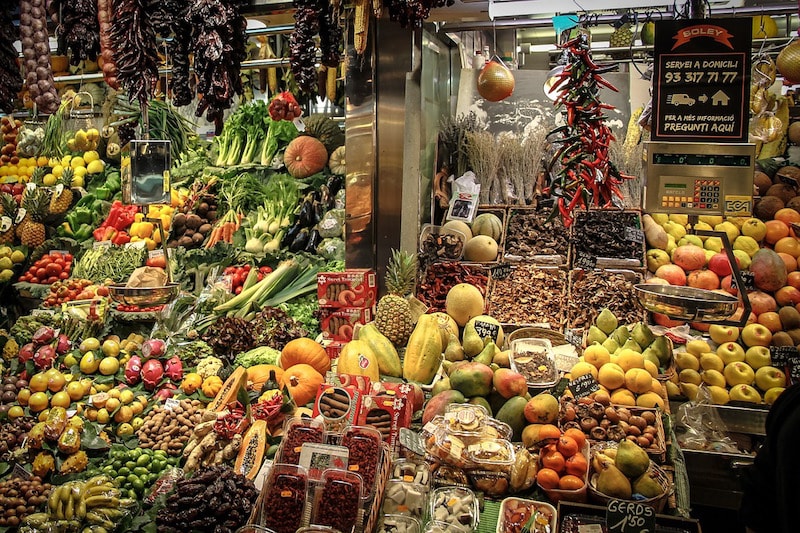
Processed and fatty foods can create inflammation in the body and lead to an excess of toxins. Avoiding them and replacing them with real food, nutrient-rich whole products, is an important step of the healing process.
Processed foods are not nutritious. They contain preservatives, artificial flavours, colouring, and other chemicals we know nothing about. Artificial sweeteners can disturb the balance of the gut flora and provoke digestive problems, so it’s best to avoid them completely. Read labels carefully.
Choose fresh and organic vegetables, beans, fruits, nuts and seeds. If you eat meat, buy organic. Eliminate dairy products from your diet. Calf growth fluid is not meant for humans. This is no surprise that it is the number one food allergen. All the proteins, fats, sugars and growth hormones are designed for another species.
Gluten can also be responsible for allergic reactions in those who suffer from digestive problems. Avoiding it for a while could help you heal faster. There are many gluten-free options available at the grocery store.
Step 3: Take probiotics
If you have used antibiotics, birth control, drugs or alcohol, chances are that your gut flora has been affected. These substances are able to slow down your digestion and to weaken your immune system.
The microbes living in your gut are very important. Every day, scientists discover new things about these micro-organisms. Did you know that your digestive system contains more than 100 trillion bacteria? Whether they are good or bad, those microbes are part of an ecosystem that regulates your digestion, so taking care of them is a great idea.
If your microbiome is unhealthy, you may not assimilate the nutrients efficiently, and you may suffer from digestive problems like constipation. Taking probiotics daily is a good home remedy to heal your digestion. You can consume probiotic supplements and or probiotic rich foods.
How to choose a probiotic supplement
Choose a brand that contains many strains of probiotics, and a high amount of active bacteria. Your capsules should contain at least 10 billion CFU, or more. Look at the expiry date and make sure they are not old. As soon as the capsules leave the manufacture, the probiotics start dying. Keeping them in the refrigerator slows down that process so look for the ones that have not been on the shelves for a year.
Step 4: Stay hydrated

Water is needed for healthy digestion. It permits the breaking down of solid food, the absorption of nutrients and the formation of stools. If you do not drink enough water, it can lead you to dehydration, low blood pressure and constipation.
It is recommended to drink at least 60 oz of water daily, spread throughout the day. It is best to drink between meals rather than with food, to avoid the dilution of stomach acids.
Step 5: Flush your colon
Colon cleansing can do wonders for your digestion. Gently flushing the colon with water can eliminate a blockage that was causing constipation for a long time. Many people suffer from having impacted feces in their large intestine, and will experience immediate relief after a colon cleanse.
A good detox demands that you rest your digestive system and let it heal. Fasting and colon cleansing is the best way to rest the intestines and focus the body’s energy on healing. Fasting and colon cleansing help with the treatment of Candida Albicans and the elimination of parasites, which are often responsible for our digestive issues. Try this 7 day detox program and see the results for yourself.
* You should not attempt to fast if you are pregnant or breastfeeding.
The best foods to help your digestion
Cultured vegetables
Cultured or fermented foods are easy to make at home, and they are available in any health food store. Sauerkraut, miso paste, kimchi and pickled vegetables contain a great amount of bacteria that are helpful at treating constipation (and diarrhea). Kombucha and kefir are fermented beverages that are also loaded with probiotics.
Psyllium
Psyllium husk is a fibre that comes from the plantago plant. It is used to relieve constipation, clean the intestines and promote a healthy digestion. Psyllium can be consumed as a whole seed husk or as a powder. Both are effective, but some studies suggest that the powder is best. Mix 1 teaspoon of psyllium in water or juice morning and night. You can also take it before a meal, if you wish to reduce your portions and lose weight. Psyllium is known to reduce appetite.
Flax
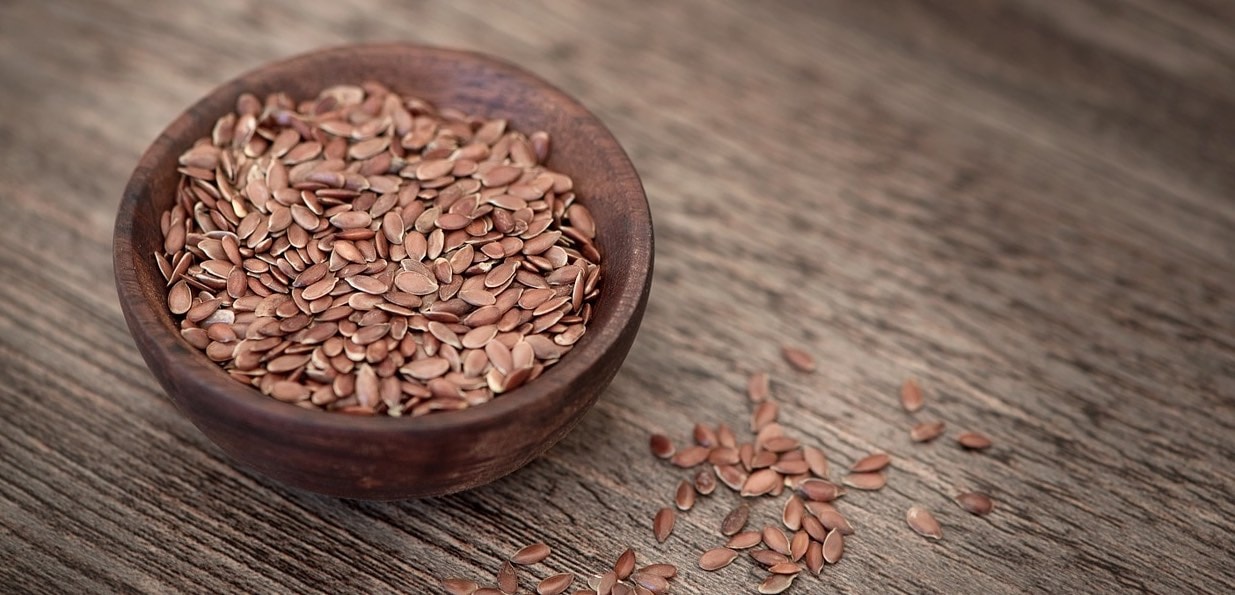
Flaxseed is another great fibre to use for better digestion and relieve constipation. Just like psyllium, it will absorb water and turn into a gel-like substance that will lubricate the GI tract. It is also protective against cancer, diabetes, heart disease and obesity. Flax is an excellent source of Omega-3 fatty acids, so everyone should have it daily. You can add 1 or 2 tablespoons of ground flaxseed to your smoothies and your morning cereal. It is also a great egg replacement in vegan baking.(1 Tbs flax, 3 Tbs water = 1 egg)
Chia
Chia seeds are very popular, and for a good reason. They promote healthy bowel movements, they are rich in protein, Omega-3 fats, antioxidants and essential minerals. Adding just 2 tablespoons of chia to your daily diet will provide you with 33% of the fibre RDA (daily recommended allowance). Here is how to make this deliciously looking chia pudding.
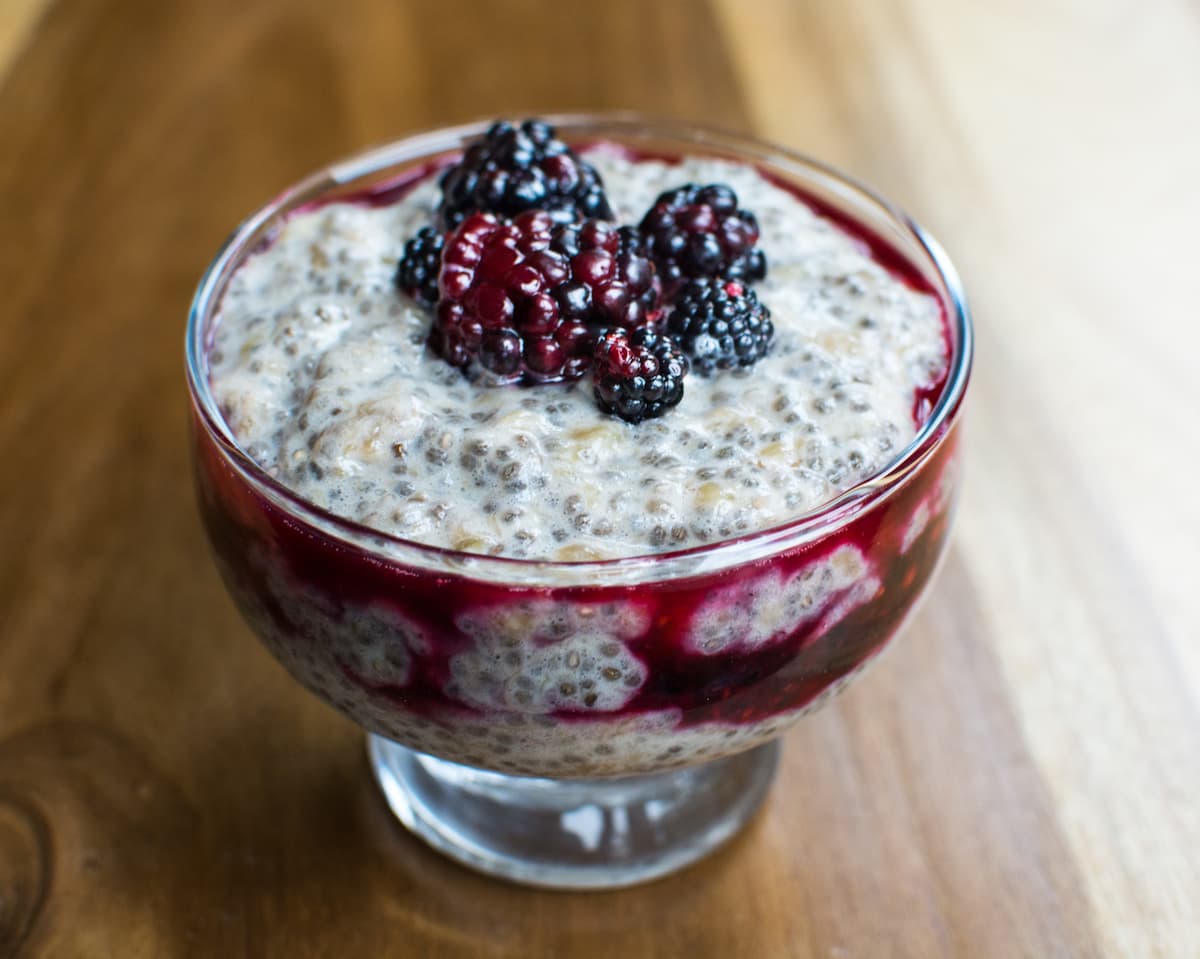
Ginger
Ginger is commonly used by pregnant women who suffer from nausea. But it is also used to treat gastrointestinal discomfort naturally. It helps reduce gassiness and bloating, and it has powerful anti-inflammatory and antibacterial properties. Simmer a few slices of ginger in boiling water, or extract the juice of the ginger roots.
How does digestion work?

The digestive system is an amazing machine that works all day long, processing the food you eat. Digestion starts before you even put the food in your mouth. Just the smell of what is cooking is enough to make you salivate.
When you take a bite, your salivary glands start producing saliva, a substance that will help break down the food. After chewing, the peristalsis movement starts in your esophagus, propelling the food into the stomach.
The food is then broken down into smaller pieces by the stomach muscles. Acids and enzymes are produced and are mixed with the food, in order to form a paste called chyme. Muscle contractions will then slowly propel small amounts of chyme through a valve called the pylorus, into the first part of the intestine, the duodenum.
Digestion will continue while the pancreas, the liver and the gallbladder produce more digestive juices. The pancreas is in charge of making digestive enzymes that break down proteins, carbs and fats. The liver produces the bile that helps with fat digestion, while the gallbladder stores it. When fatty food enters the duodenum, the gallbladder sends bile through the bile ducts.
When the chyme reaches the second section of the intestine, the jejunum, it gets broken down into smaller molecules that can be absorbed. Once it gets to the last and longest part of the small intestine, the ileum, the remaining nutrients are absorbed through the intestinal wall.
Water, electrolytes, waste products and dead cells will continue the journey to the large intestine, also called the colon. Nearly all the water will then be absorbed, leaving us with stool to be eliminated through the rectum.
So now I turn to you!
Do you suffer from digestive problems? What have you tried to make it better? Did it work?
